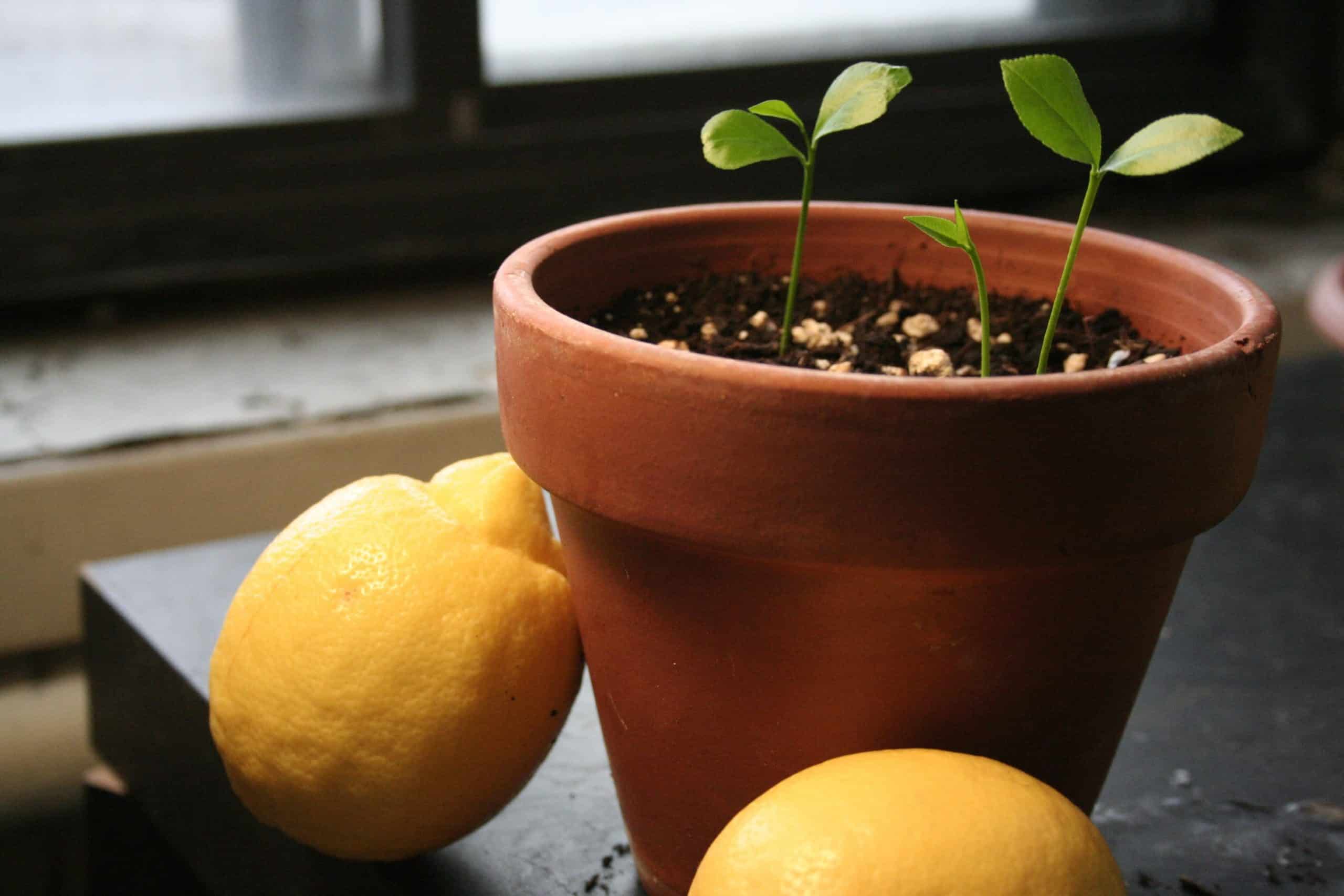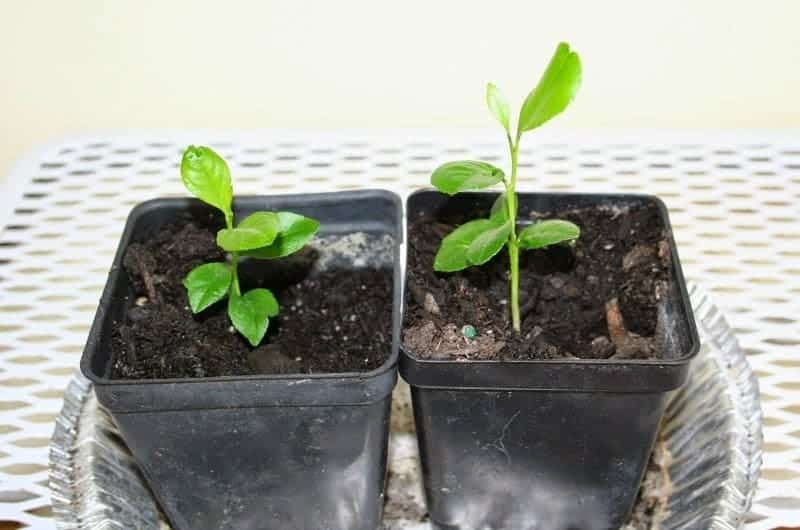Lemon trees, with their vibrant green foliage and tangy fruits, are a delightful addition to any garden or home. It can take quite a while, around ten years, to grow a lemon tree from a seed. There’s no assurance that you’ll be rewarded with delicious and visually appealing lemons at the end of this patient journey.
However, it remains an enjoyable endeavor, allowing you to witness the lifecycle of your beloved citrus trees. Germinating lemon seeds is relatively simple, so you’re likely to see positive outcomes in the form of a robust and vibrant little lemon tree.
The Guide To Grow Lemon From Seeds
Step 1: Seed Preparation
1. Seed Selection
Selecting high-quality lemon seeds is crucial for successful germination. Choose seeds from ripe, healthy lemons that are preferably organic. Rinse the seeds thoroughly to remove any pulp or residue, and allow them to dry completely before planting.
2. Seed Planting
Prepare a well-draining potting mix or soil for planting the seeds. Fill small pots or seed trays with the soil, leaving about an inch of space at the top. Plant the seeds about half an inch deep in the soil, and water lightly.

Step 2: Seed Germination
1. Germination
Your pots or trays should be positioned in a warm, sunny location. Lemon seeds typically take two to four weeks to germinate. Keep the soil consistently moist but not waterlogged during this period to encourage germination.
2. Taking Care Of Seedlings
Once the seeds have germinated, continue to provide ample sunlight and water regularly. Keep the soil moist but avoid overwatering, as this can lead to root rot. Provide additional warmth if needed, especially during cooler months.
Step 3: Transplanting
When the seedlings have developed several sets of true leaves and are sturdy enough to handle, they can be transplanted into larger pots or directly into the ground. Choose a sunny location with well-draining soil for transplanting.

Step 4: Care For Lemon Trees
1. Sunlight
If you live in a warm, temperate climate, keep your lemon tree outdoors in a pot. Ensure nighttime temperatures don’t drop below 41°F (5°C). In areas with year-round daily sunlight (at least 8 hours), you can plant lemon trees directly in the ground.
During colder months, bring your lemon tree indoors to a sunroom, patio, or greenhouse. Frost can harm lemon trees, so monitor the weather forecast and act accordingly. Dwarf lemon trees are ideal for indoor growth.
2. Water
Lemon trees require regular watering, especially during dry periods. It’s necessary to water deeply once weekly or bi-weekly, depending on rainfall or indoor humidity. Plus, remember to allow the soil to dry out slightly between waterings.
3. Fertilizing
Fertilize your lemon tree (especially Meyer varieties) every 4 to 6 weeks from February to August. It is recommended by experts to apply either an all-purpose fertilizer enriched with micronutrients or a fertilizer specifically designed for lemon trees during the growing season.
4. Pest And Disease Control
Your lemon trees are vulnerable to pests such as aphids, scale insects, and citrus leaf miners. You can use organic pest control methods or insecticidal soaps to manage infestations. Additionally, keep an eye out for common diseases like citrus canker and treat them promptly if detected.

Step 5: Harvesting
Growing a lemon tree from seeds usually requires patience, as it can take anywhere from seven to 15 years. However, the rewards are well worth the wait when you witness the mature tree yielding delicious fruits. When the lemons are ripe and ready to be picked, they exhibit a firm texture and a bright yellow hue, so you can easily snip them off the plant with a pair of scissors. The best part is that these lemons can stay ripe on the tree for several weeks to even months.
FAQS
1. Can I Grow A Lemon Tree From Seeds Purchased From A Grocery Store Lemon?
Yes, you can grow a lemon tree from seeds obtained from a grocery store lemon. However, keep in mind that the resulting tree may not produce fruits identical to the parent lemon, as it might be a hybrid.
2. Do Lemon Seeds Need To Be Dried Before Planting?
Yes, it’s recommended to allow lemon seeds to dry completely before planting to prevent rotting. Rinse the seeds thoroughly to remove any pulp or residue, then let them air dry for a few days.

3. What Is The Best Time To Plant Lemon Seeds?
Lemon seeds can be planted at any time of the year, but starting them indoors in late winter or early spring often provides a favorable environment for germination.
4. Do Lemon Trees Need Pruning?
Yes, lemon trees benefit from pruning to remove dead or diseased branches, improve air circulation, and shape the tree. Pruning can be done throughout the year as needed.
There’s nothing more enjoyable than to pluck a succulent and fragrant citrus fruit. The possibilities are endless when it comes to utilizing these zesty lemons in your culinary creations, whether you like to add them to delicious pasta sauces, create tantalizing tarts, or craft invigorating cocktails.
